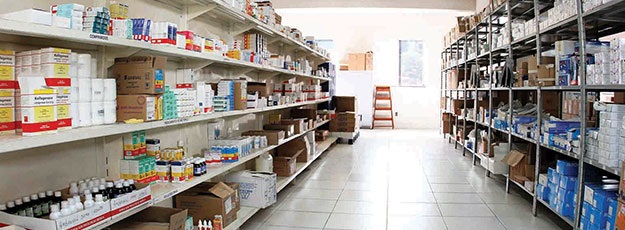Mozambique: Malaria killed 16 since January in Tete province
Stock of medicines in Maputo enough until year end

File photo / For illustration purposes only
The Health Directorate in the Mozambican capital Maputo on Wednesday announced that it has enough stock of medicines to cover all health facilities and public pharmacies and carry through to the end of 2017.
According to Chief Medical Officer, Sheila Lobo, who was speaking to the press on the side-lines of Pharmacies Bi-annual Meeting, the city of Maputo has at its disposal just over 800 kits of medicines, which is enough stock to last until the end of the year. The one-day meeting was to discuss Medication Management and Availability in the City of Maputo.
“We have stocks available of essential medicines. Today (Wednesday) we will start distribution of kits for next month, “said Lobo, who acknowledged shortage of special prescription drugs, such as those used to treat psychiatric illness. However, they are handed out as soon as they become available.
Lobo also acknowledged that health services are struggling to contain theft of medicines, which has become a nightmare for the National Health System. The Health Directorate supervises 34 pharmacies.
The city’s health authorities are working to reduce the theft drugs medical stores of the National Health Service, and one of the initiatives includes installation of surveillance cameras inside the medical stores to control the movements of staff, and identify who is removing medicines.
Also, the health authorities are working at the community level to encourage people to come forward and denounce those involved in the illegal sale of medicines. This will help to identify both the people involved and the mechanisms used to steal medicines.
Theft of medicines has been on the rise over the last few years at an alarming rate, which are then sold in informal markets. In most cases those medicines are exposed to the elements, which render them unsafe for human consumption.
As for the shortage of medicines in the health centres and public pharmacies, Lobo explained that patients can look for other options instead of sticking to those which have been prescribed.
To that end, health authorities are working with pharmacies to produce a full list of available medicines which will be handed over to the all medical doctors. Then they will advise the doctors to prescribe, whenever possible, only medicines available in the list.
“For example, if there is no ibuprofen, which is an anti-inflammatory drug, then I can take diclofenac which has the same effect, and in those cases the doctor can surely prescribe an alternative which diclofenac,” Lobo explained.












Leave a Reply
Be the First to Comment!
You must be logged in to post a comment.
You must be logged in to post a comment.